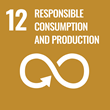Project information
An integrative strategy of testing systems for identification of EDs related to metabolic disorders
(OBERON)

- Project Identification
- 825712
- Project Period
- 1/2019 - 6/2024
- Investor / Pogramme / Project type
-
European Union
- Horizon 2020
- Health, demographic change and wellbeing (Societal Challenges)
- MU Faculty or unit
- Faculty of Science
- Cooperating Organization
-
Institute of Biophysics
Inserm Transfert
Institut national de la santé et de la recherche médicale
- Responsible person Dr. Karine Audouze
Barcelona Institute for Global Health
ARISTOTLE UNIVERSITY OF THESSALONIKI
ANSES
Miguel Hernández University
Institut national de l'environnement industriel et des risques
Metabolon GmbH
The Environmental Engineering Laboratory (ENVE Lab)
Exposure to chemical substances that can produce endocrine disrupting effects represents one of the most critical public health threats nowadays. In line with the regulatory framework implemented within the European Union to reduce the levels of endocrine disruptors (EDs) for consumers, new and effective methods for ED testing are needed. The OBERON project will build an integrated testing strategy (ITS) to detect EDs-related metabolic disorders by developing, improving and validating a battery of test systems. It will be based on the concept of an integrated approach for testing and assessment (IATA). OBERON will combine 1) experimental methods (in vitro e.g. on 2D and 3D human-derived cells and tissues, and in vivo i.e. in zebrafish at different stages), 2) high throughput omics technologies, 3) epidemiology and human biomonitoring studies and 4) advanced computational models (in silico and systems biology) on functional endpoints related to metabolism.
Such interdisciplinary framework will help at deciphering EDs based on mechanistic understanding of toxicity by providing and making available more effective alternative test methods relevant for human health that are in line with regulatory needs. Data generated in OBERON will also allow the development of novel Adverse Outcome Pathways (AOPs). The assays will be pre-validated in order to select the test systems that will show acceptable performance in terms of relevance for the
second step of the validation process, i.e. the inter-laboratory validation as ring tests. Therefore, the aim of the OBERON project is to support the OECD conceptual framework for testing and assessment of EDs by developing specific assays not covered by the current tests, and to propose an IATA approach for ED-related metabolic disorders detection, which will be submitted to the JRC and OECD community.
Sustainable Development Goals
Masaryk University is committed to the UN Sustainable Development Goals, which aim to improve the conditions and quality of life on our planet by 2030.
Publications
Total number of publications: 7
2025
-
Impact of endocrine disruptors on key events of hepatic steatosis in HepG2 cells
Food and Chemical Toxicology, year: 2025, volume: 197, edition: March 2025, DOI
2024
-
Cyanotoxin cylindrospermopsin disrupts lipid homeostasis and metabolism in a 3D in vitro model of the human liver
Chemico-Biological Interactions, year: 2024, volume: 397, edition: July 2024, DOI
-
Endocrine disruption of adipose physiology: Screening in SGBS cells
Journal of Applied Toxicology, year: 2024, volume: 44, edition: 11, DOI
2023
-
ELIXIR and Toxicology: a community in development [version 2; peer review: 2 approved]
F1000Research, year: 2023, volume: 10, DOI
2022
-
AOP-helpFinder webserver: a tool for comprehensive analysis of the literature to support adverse outcome pathways development
Bioinformatics, year: 2022, volume: 38, edition: 4, DOI
-
Combinatorial pathway disruption is a powerful approach to delineate metabolic impacts of endocrine disruptors
FEBS Letters, year: 2022, volume: 596, edition: 24, DOI
-
Parabens and antimicrobial compounds in conventional and "green" personal care products
Chemosphere, year: 2022, volume: 297, edition: June 2022, DOI



